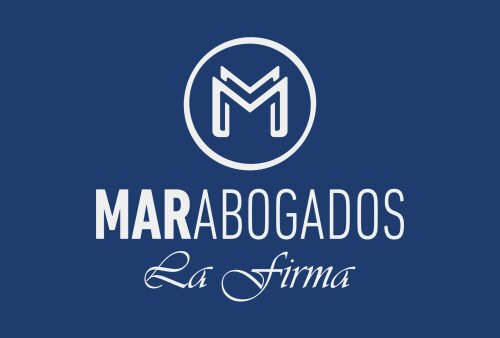Best Conveyancing Lawyers in Las Palmas de Gran Canaria
Share your needs with us, get contacted by law firms.
Free. Takes 2 min.
Free Guide to Hiring a Real Estate Lawyer
List of the best lawyers in Las Palmas de Gran Canaria, Spain
About Conveyancing Law in Las Palmas de Gran Canaria, Spain
Conveyancing is the legal process involved in buying, selling, or transferring ownership of real estate property. In Las Palmas de Gran Canaria, as with the rest of Spain, conveyancing ensures that property transactions are completed lawfully and that ownership rights are protected. The process typically involves several steps, including drafting and reviewing contracts, conducting due diligence, registering ownership, and handling financial settlements. Spanish property law is governed by national statutes but also influenced by local practices and regulations specific to the Canary Islands.
Why You May Need a Lawyer
Engaging a lawyer for conveyancing in Las Palmas de Gran Canaria is highly recommended for anyone unfamiliar with Spanish property laws or the intricacies of local regulations. Common situations where a lawyer’s assistance is essential include:
- Buying or selling a home or commercial property
- Transferring inherited property
- Mediating disputes over property boundaries or title
- Ensuring all taxes and municipal fees are settled
- Verifying that the seller has legal title and the property is free of debts and encumbrances
- Assisting non-Spanish speakers or foreign investors in understanding legal documents
- Drafting and negotiating contractual terms
A lawyer will help navigate bureaucratic requirements and protect your interests throughout the conveyancing process.
Local Laws Overview
Conveyancing in Las Palmas de Gran Canaria is subject to both Spanish national property law and specific local rules applicable to the Canary Islands. Key legal aspects include:
- Land Registry: All property transactions must be registered with the "Registro de la Propiedad" to ensure legal title transfer.
- Notary Involvement: Purchases and sales of property require the involvement of a Spanish notary (notario) who certifies the transaction and oversees the signing of deeds (escritura pública).
- Taxation: Buyers are responsible for transfer taxes ("Impuesto de Transmisiones Patrimoniales") and other applicable taxes. Sellers may be subject to capital gains tax and municipal “plusvalía” tax.
- Due Diligence: Lawyers will investigate for any debts, encumbrances, or planning issues attached to the property.
- Foreign Buyers: Non-residents can purchase property, but must obtain a Spanish tax identification number (NIE) and comply with currency transfer regulations.
- Urban and Coastal Regulations: Local zoning and coastal laws can affect permissions to build or modify properties, especially near the shoreline.
Frequently Asked Questions
What is the purpose of a notary in Spanish conveyancing?
The notary is an impartial public official who certifies and ensures the legality of property transactions, making the sale or purchase official and enforceable.
Do I need to be physically present in Las Palmas de Gran Canaria for the conveyancing process?
Physical presence is not mandatory. You can appoint a legal representative through a power of attorney to complete property transactions on your behalf.
What documents are typically required to buy property?
You will need identification (such as passport), a Spanish tax number (NIE), evidence of funds, and, in some cases, proof of residency status. The seller must provide title deeds, proof of tax payments, and an energy efficiency certificate.
How long does the conveyancing process usually take?
The process can take anywhere from a few weeks to several months, depending on the complexity of the transaction and the thoroughness of due diligence.
Are there any restrictions on foreign buyers?
No, foreign nationals can buy property in Las Palmas de Gran Canaria. However, they must obtain an NIE and follow any requirements concerning capital transfer and anti-money laundering regulations.
What are the main costs involved in conveyancing?
Costs include notary fees, land registry fees, legal fees, transfer taxes, and, for sellers, capital gains and municipal “plusvalía” tax. These costs typically represent between 8 percent and 12 percent of the property price.
How is the property title checked?
Lawyers and notaries check the Spanish Land Registry to confirm legal ownership, verify that there are no outstanding debts or encumbrances, and ensure that the property is fit for sale.
Is it necessary to sign a preliminary agreement?
Yes, most transactions begin with an initial deposit contract or “contrato de arras,” which sets out the terms and removes the property from the market.
What happens on the day of completion?
The parties meet at the notary’s office to sign the official deed of sale, pay the final purchase price, and deliver keys. The notary then submits the deed for registration.
What should I do if I discover legal or structural issues after the purchase?
You should contact your lawyer immediately. There are legal protections for buyers regarding hidden defects or misrepresentations, but time limits apply for making claims.
Additional Resources
Those seeking further information or support on conveyancing in Las Palmas de Gran Canaria may find these resources helpful:
- Registro de la Propiedad (Land Registry): The official body responsible for property registration in Spain.
- Colegio de Abogados de Las Palmas: The local Bar Association, where you can find qualified conveyancing lawyers.
- Ayuntamiento de Las Palmas de Gran Canaria: The City Hall, providing information on municipal taxes and urban planning.
- Spanish Notaries: For locating local notary offices and general information on the notarization process.
- Ministry of Justice (Ministerio de Justicia): Offers resources on property law and legal procedures in Spain.
Next Steps
If you require legal assistance with conveyancing in Las Palmas de Gran Canaria, consider the following steps:
- Contact a reputable local lawyer with expertise in Spanish property law and familiarity with Canary Islands-specific regulations.
- Gather all relevant documentation regarding your property or intended purchase.
- Arrange an initial consultation to discuss your situation, costs, and the scope of legal services provided.
- Understand the full process, timelines, and necessary actions required in your conveyancing matter.
- Follow your lawyer’s guidance to ensure compliance with all legal, tax, and administrative requirements.
Having professional legal support throughout the conveyancing process will help make your property transaction in Las Palmas de Gran Canaria secure, efficient, and trouble-free.
Lawzana helps you find the best lawyers and law firms in Las Palmas de Gran Canaria through a curated and pre-screened list of qualified legal professionals. Our platform offers rankings and detailed profiles of attorneys and law firms, allowing you to compare based on practice areas, including Conveyancing, experience, and client feedback.
Each profile includes a description of the firm's areas of practice, client reviews, team members and partners, year of establishment, spoken languages, office locations, contact information, social media presence, and any published articles or resources. Most firms on our platform speak English and are experienced in both local and international legal matters.
Get a quote from top-rated law firms in Las Palmas de Gran Canaria, Spain — quickly, securely, and without unnecessary hassle.
Disclaimer:
The information provided on this page is for general informational purposes only and does not constitute legal advice. While we strive to ensure the accuracy and relevance of the content, legal information may change over time, and interpretations of the law can vary. You should always consult with a qualified legal professional for advice specific to your situation.
We disclaim all liability for actions taken or not taken based on the content of this page. If you believe any information is incorrect or outdated, please contact us, and we will review and update it where appropriate.









